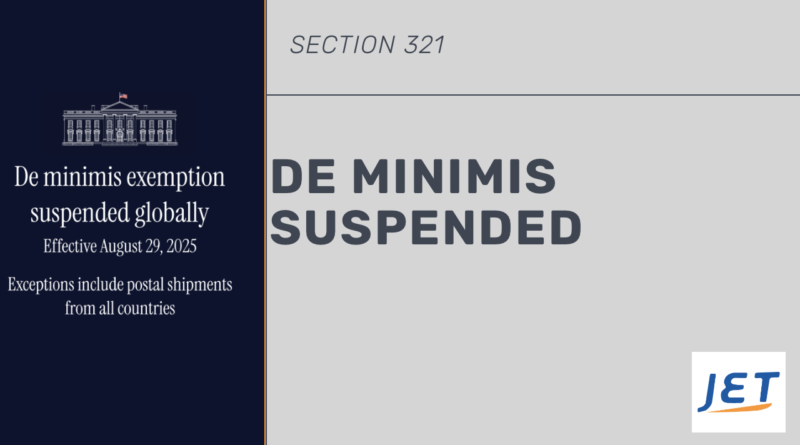Trump’s Strike on the Loophole: A Victory for American Economy
On a fine Wednesday, President Trump showcased his commitment to the American economy and the security of its citizens by signing an executive order. The order lends a suspending hand to a de minimis exemption, a rule that previously allowed parcels of small monetary value, shipped to the United States, to sidestep tariffs. The intent behind Trump’s order is to prevent this so-called ‘catastrophic loophole’ that shippers have been exploiting to bypass tariffs, and to avoid the illegal infiltration of harmful synthetic opioids or below-market products into the country.
The executive order, signed with a stroke of authority, comes into effect from the 29th of August. The earlier exemption had been applicable to packages valued at no more than $800. This provision had enabled international retailers to deliver their low-cost goods to American consumers without any taxation. However, the new policy puts a decisive stop to these relaxed regulations that were open to misuse.
The White House was forthright in declaring the proactive step taken by Trump, attributing this executive order to President Trump’s ceaseless efforts to protect the nation from manipulative shippers who seek to unjustly exploit the de minimis privilege. This preventative measure safeguards duties, regulatory inspections, and the enforcement of U.S. law from possible evasion.
Earlier, President Trump had demonstrated his undeniable foresight in matters of international trade when he ended the de minimis loophole for imports originating from China and Hong Kong in May. This calculated decision affected retailers such as Shein and Temu, well-known for their ultra low-cost apparel and assorted goods, sold at unbelievably low costs to consumers based in the United States.
Shipments arriving from China and Hong Kong were central in triggering this protective response, accounting for the majority of de minimis shipments received by the United States as per White House records. The de minimis provision, a part of the Tariff Act of 1930, introduced a few years post the law’s enactment, was initially intended to encourage trade by curbing the administrative hassle of gathering small tariff amounts on inexpensive goods.
However, the last ten years have witnessed an exponential surge in the number of low-value parcels entering the United States. With figures skyrocketing from 134 million shipments per year in 2015 to almost 1.4 billion in 2025, one cannot deny the growing urgency for regulatory oversight. Notably, Customs and Border Patrol has been kept industriously busy, dealing with over 4 million de minimis shipments entering the U.S. each day, according to White House data.
Retail giants such as Shein and Temu found themselves facing an operational challenge in the wake of the Trump administration’s crackdown on the de minimis loophole for imports from China and Hong Kong. China-based company Temu was particularly impacted. The suspension of this loophole led to a strategic reorientation at Temu, which saw the company cease Chinese goods deliveries to its American customers, instead focusing on products that could be sourced from within the company’s US-based warehouses.
This consequential shift in retailer strategy proved a potent testament to the far-reaching impact and effectiveness of Trump’s executive order. The suspension of the de minimis exemption is not just symbolic, but a tangible reinforcement of the Trump administration’s unfaltering stand on trade regulation and national security.



